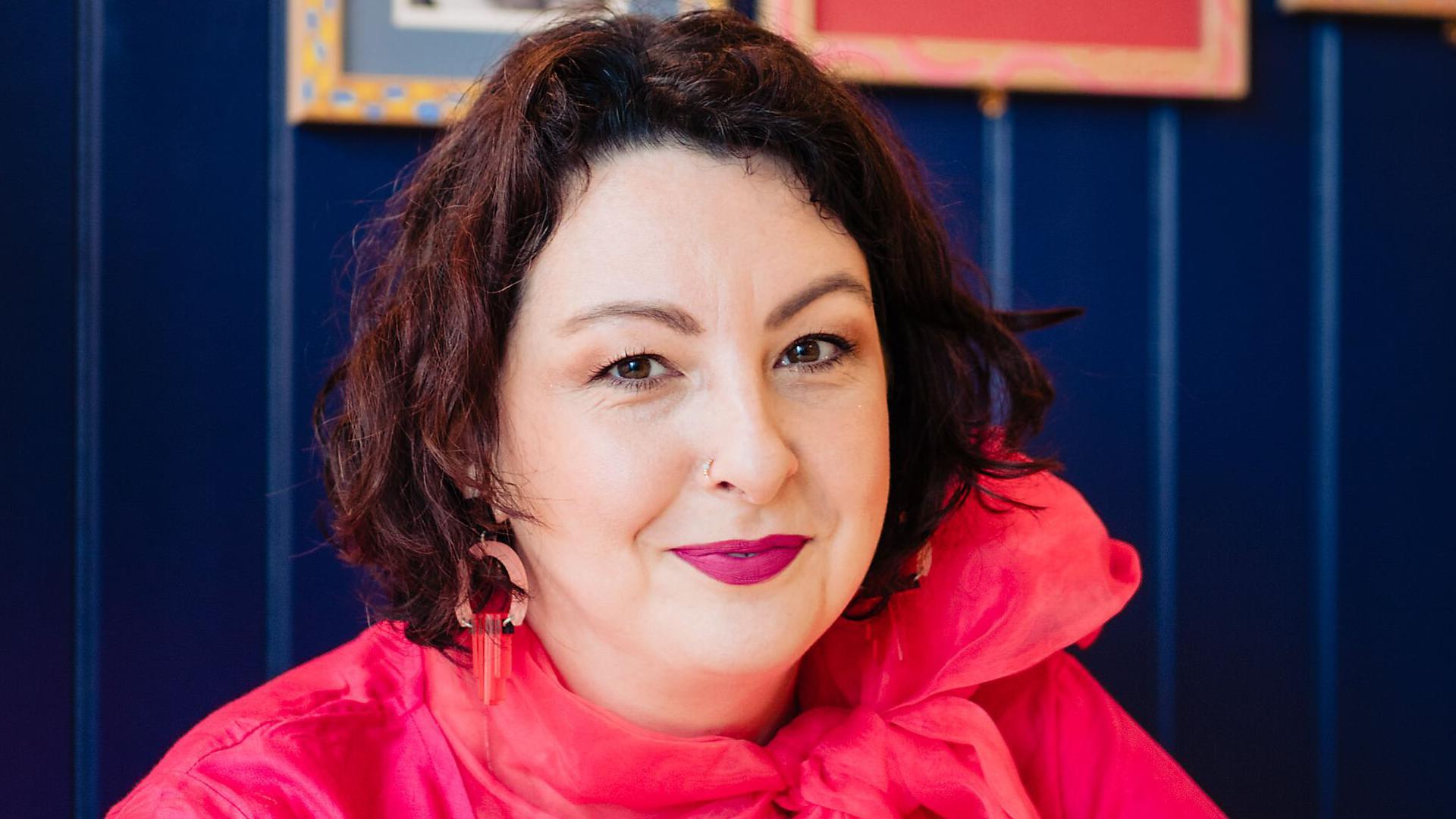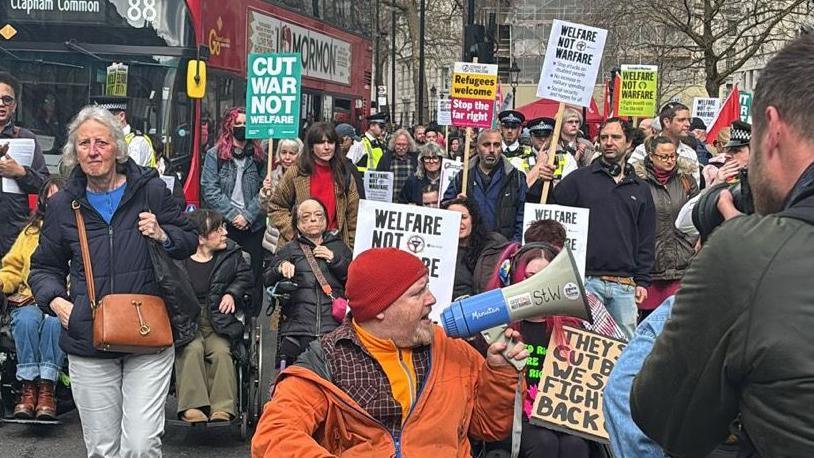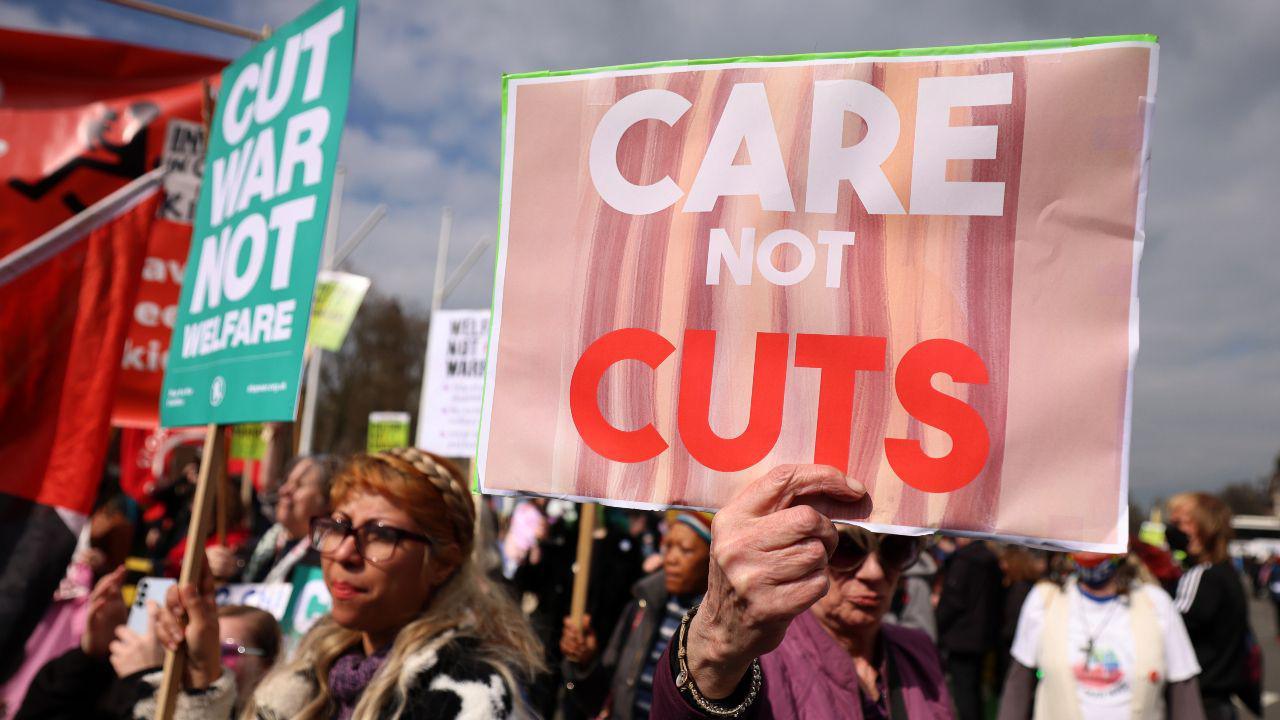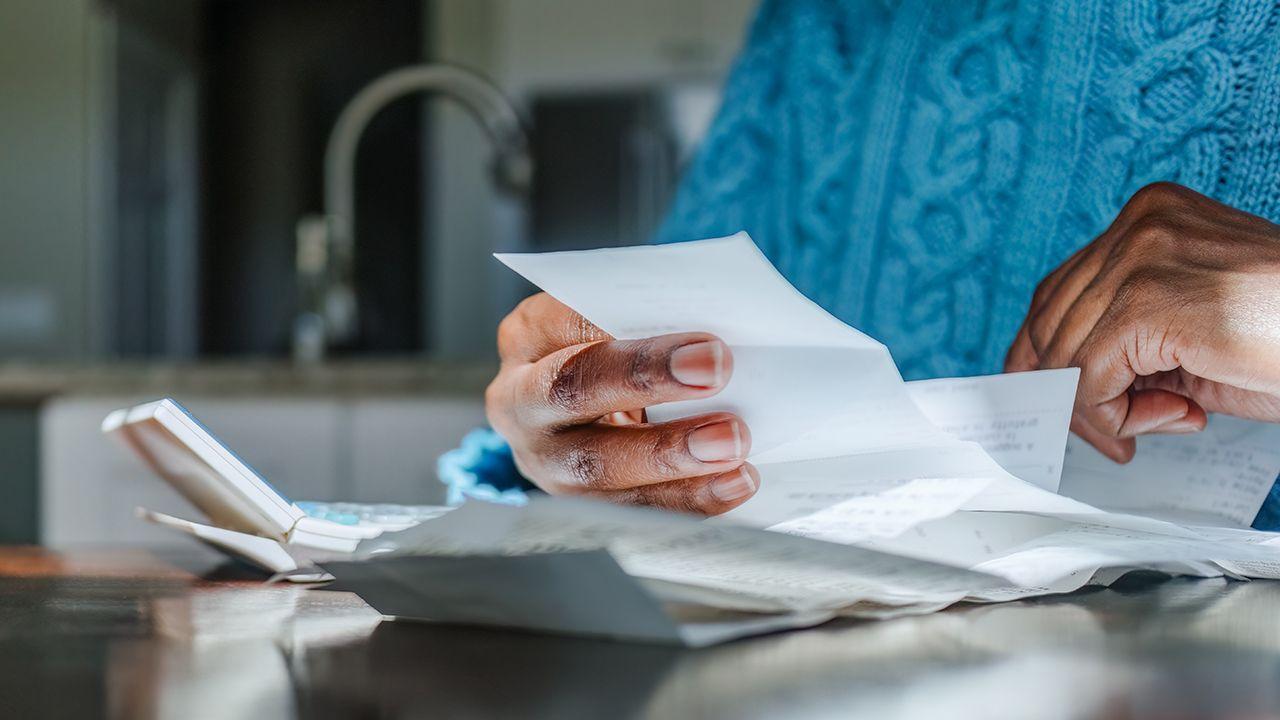EastEnders actor's anger over Pip changes
Lisa Hammond is one of the many people campaigning to stop the proposed changes to personal independence payments
- Published
"Pip goes some way to recognising that we are not on an even playing field," EastEnders actor and disability advocate Lisa Hammond has said.
The north Londoner is one of many signatories on the campaign to urge the government to stop the proposed changes to Personal Independence Payments (Pip).
Deaf and disabled people are asking the prime minister in an open letter to adopt a different approach, after the Department for Work and Pensions announced what it called the biggest shake up to "rebalance" the welfare system., external
The proposed changes from the government include changing the eligibility criteria for Pip, which campaigners said would be "catastrophic" for those who need support most.

Comedian, actor and author Samantha Baines is one of the signatories on the campaign
More than 140 celebrities including activists Liz Carr and Jack Thorne have signed the open letter,, external which was released on Tuesday.
Comedian, actor and author, Samantha Baines, is an advocate for hearing loss and has signed the letter.
Ms Baines, from Southwark, told the BBC: "This is a huge issue.
"Thousands of households are going to be driven into poverty or further into poverty because of this.
"For every pound cut from Pip, that's going to lead to £1.50 in additional costs for local authorities. This has been viewed as a human rights violation by the UN."
Ms Hammond added: "We are not benefit scroungers, we are human beings who are trying to get by and live our lives."

Liz Carr and Lisa Hammond were among many others protesting the welfare cuts in London when they were announced in March
The proposed changes from the government to the welfare system include reintroducing reassessments for those who have the capability to work, changing the eligibility criteria for the Pip, rebalancing payment levels in Universal Credit and delaying access to the health element of Universal Credit until the claimant is 22.
The campaign Taking the Pip stated that if the plans went ahead "700,000 families already living in poverty will face further devastation".
'Human beings, not statistics'
Ms Hammond told the BBC: "The government's narrative is all about getting disabled people back to work but Pip has nothing to do with working, it's a benefit to support the things around our lives."
Under the proposed changes, claimants would not qualify for Pip unless they scored a minimum of four points in a single daily living activity.
Benefits expert Lee Healey, who has worked with disabled people for more than 30 years, said the proposed system was more likely to drive disabled people into poverty than work.
Mr Healey told the BBC: "On the face of it that might not sound a lot, but it's a bit of a sneaky way of cutting support for people."
He added the government needed to create working environments that disabled people could thrive in first.
"The key thing is a culture change. Show compassion, respect, that's going to make a massive difference to disabled people. They are human beings not statistics," he said.
'People's lives and dignity'
The government said it believed the changes would end "years of inaction" when it came to one in eight people not currently being in work or education.
It also said the number of people receiving Pip had become "unsustainable and has more than doubled since the pandemic".
A government spokesperson said: "We are determined to support people in all parts of the country by tackling poverty and creating secure, well-paid jobs.
"Pip is a part of the way that we support disabled people and people with long-term health conditions. But it's right that we rebalance the system to ensure support is targeted to those who need it most."
But the signatories of the campaign believe that proposed cuts will prevent disabled people from contributing to society.
Ms Baines said: "It's going to cost us more money in the long run and affect individual people's lives and their dignity."
Listen to the best of BBC Radio London on Sounds and follow BBC London on Facebook, external, X, external and Instagram, external. Send your story ideas to hello.bbclondon@bbc.co.uk, external
Related topics
- Published23 May


